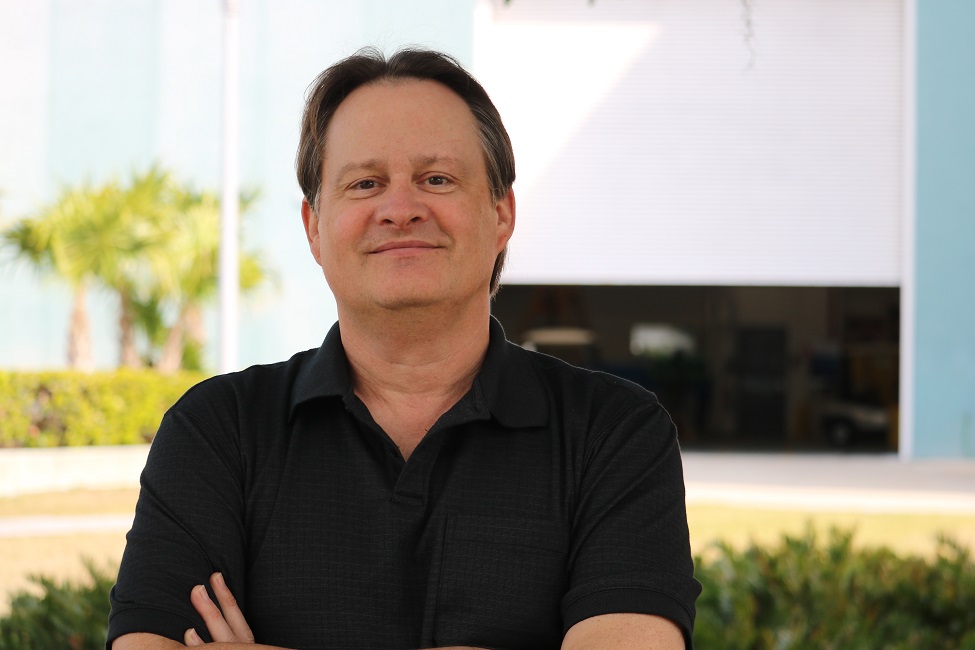James M. Sullivan, Ph.D., to Lead FAU’s Harbor Branch

An internationally renowned researcher and leading oceanographer has been named executive director of Florida Atlantic University’s Harbor Branch Oceanographic Institute. James M. Sullivan, Ph.D., who joined FAU’s Harbor Branch in 2015, has served as interim executive director since March. In this new role, Sullivan will develop, implement and lead FAU's environmental and ocean science research and programs, one of the university's four pillars. His appointment was effective beginning July 28.
Before becoming interim executive director of FAU’s Harbor Branch, Sullivan held senior positions in both academia and industry at the University of Rhode Island, as research faculty at its Graduate School of Oceanography, and as a senior oceanographer for the private company, Sea-Bird Scientific, which manufactures instruments for measuring and monitoring ocean activity.
During his career, Sullivan received funding through most of the major federal science agencies including the National Science Foundation, National Oceanic and Atmospheric Administration, National Oceanographic Partnership Program, Office of Naval Research, National Aeronautics and Space Administration, and the National Institutes of Health. He has received more than $11 million in grant funding from these agencies.
“Dr. Sullivan is an outstanding addition to our environmental and ocean science research team and is uniquely poised to take the helm at FAU’s Harbor Branch Oceanographic Institute,” said Daniel C. Flynn, Ph.D., FAU’s vice president of research. “His collaborative spirit and impressive background, knowledge and expertise working in both academia and industry make him a dynamic leader who will successfully direct the strategic vision and mission of this Florida Atlantic University pillar.”
Sullivan’s research interests include biological and physical mechanisms that control the spatial-temporal dynamics of phytoplankton/zooplankton populations in the coastal oceans; harmful algal bloom (red tide) dynamics; bioluminescence in the ocean; and the development and use of optical and autonomous sampling instrumentation and analytical techniques needed to study these complex processes. He has developed or co-developed equipment that includes a moored autonomous vertical profiler; a bathyphotometer; an in situ hyperspectral spectrophotometer; and an in situ holographic microscope for 3D characterization of undisturbed particles in the ocean.
Sullivan has more than 50 peer-reviewed publications to his credit and has held editorial positions for several international scientific journals. He currently serves as an editor of Optics Express.
“It is an honor and a privilege to lead FAU’s Harbor Branch Oceanographic Institute,” said Sullivan. “I am excited to work with an exceptional team and a great community that shares my passion for advancing critical environmental and ocean sciences research and programs that will make a difference locally as well as globally.”
Sullivan earned his master’s and doctorate degrees in biological oceanography with specializations in phytoplankton physiology and ecology, as well as bio-optics and biophysics from the University of Rhode Island - Graduate School of Oceanography.
FAU is in its fifth decade of working with marine science and technology partners on applied projects that produce positive environmental, societal and economic outcomes. Sullivan is leading a strategic effort to develop interdisciplinary research by combining expertise across many FAU centers and colleges including: FAU’s Harbor Branch; Institute for Sensing and Embedded Network Systems Engineering (I-SENSE); SeaTech: Institute for Ocean and Systems Engineering; Florida Center for Environmental Studies; Charles E. Schmidt College of Science, Harriet L. Wilkes Honors College, and the College of Engineering and Computer Science.
-FAU-
Tags: community | science | harbor branch | research | technology | engineering | faculty and staff | education